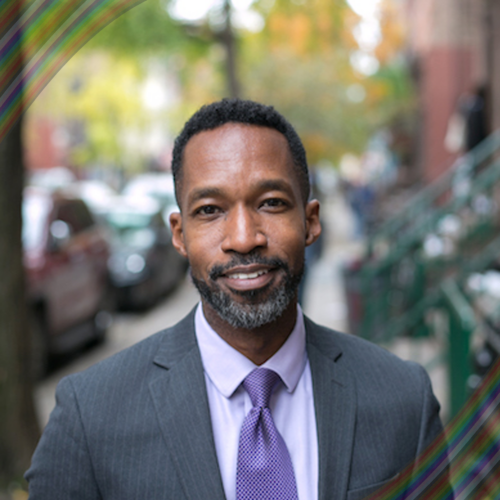Lent has long been framed as a season of fasting, repentance, and turning toward the Divine. Yet, in a nation gripped by state-sanctioned violence, legislative cruelty, and the erosion of basic rights, Lent cannot merely be a time of private reflection. It must also be a discipline of resistance, a sacred disruption to the narratives that attempt to silence the voices of the marginalized.
For womanists, whose theology is shaped by the lived experiences of Black women and the sacred wisdom of our foremothers, Lent is an invitation to hold the tension between stillness and holy rage. It is a call to sit in the quiet, not out of passivity but out of divine strategy. It is an opportunity to be present with grief, not as a form of despair but as an act of prophetic witness. And it is a time to wield righteous anger, not as reckless fury but as a fire that refines and transforms.
These practices—contemplative prayer, silence, and the unleashing of holy rage—are not contradictions but necessary spiritual disciplines in a time of oppression. They are, as womanist theologians have long insisted, the rhythms of survival and resistance.
Stillness as Strategy: The Power of Contemplative Prayer
Many people misunderstand stillness as resignation. But for Black women, whose bodies have been overworked and over-surveilled, stillness is a form of insurgency. Rest is resistance. Silence is strategy. Reflection is revolution.
In my book, Love, Auntie, I explore what I call Sacred Belonging, the practice of reclaiming our wholeness in a world that attempts to fracture and discard us. A key commitment of Sacred Belonging is recognizing that truth-telling is spiritual discernment—and the first step toward truth-telling is knowing when to be silent long enough to hear God’s voice.
Contemplative prayer is an ancient practice, but it carries particular power when reclaimed through a womanist lens. In a world that demands Black women always be performative, productive, or proving ourselves worthy, contemplative prayer is a way of reclaiming space that cannot be policed. It is where we meet the Divine on our own terms, without having to justify our humanity.
Lent calls us into this kind of stillness—not to retreat from the world, but to see it more clearly. To listen for the ancestors’ wisdom. To hear the groaning of the earth and the cries of the people. To center our breath when the world conspires to take it away.
As Psalm 46:10 reminds us, “Be still, and know that I am God.” The stillness is not a passive act. It is a refusal to be distracted by the chaos of empire. It is a sacred withdrawal into power.
The Discipline of Holy Rage
But stillness is not the whole story. There is a time for silence, and there is a time to overturn the tables in the temple.
Jesus, in his Lenten journey toward the cross, did not merely fast and pray. He also disrupted, confronted, and challenged the forces of oppression. He called out hypocrisy. He stood with those whom the empire had cast aside. He refused to accept that suffering was inevitable.
This is where holy rage becomes a sacred discipline. Womanist theologian Katie Geneva Cannon reminds us that “our rage is not a sin, it is a source of revelation.” Our anger at injustice is not something to suppress; it is something to harness.
For too long, Black women have been told that our anger is dangerous. That we must swallow our grief, temper our outrage, and smooth the rough edges of our prophetic witness. But Lent, if we are paying attention, shows us another way.
Lent invites us to lament boldly, to grieve in public, to refuse the respectability politics that demand our silence. It calls us to name oppression with the fire of the prophets. It reminds us that to be angry in the face of injustice is to be aligned with a God who cast down the mighty and lifted up the lowly.
This is why, in Love, Auntie, I write that “tears are salvific work”—because lament and anger are not just emotions; they are theological acts. They are a refusal to let oppression go unnamed. They are an insistence that suffering must not be normalized.
Lent is a time to let ourselves feel deeply, to hold grief and fury in the same sacred hands. It is a time to wail at the tomb of Lazarus, to flip the tables of corruption, to call out the empires that crucify the innocent. It is, in short, a time to be as unapologetically womanist as Jesus himself was.
Sacred Belonging in an Oppressive Regime
We are living in a moment where cruelty is being codified into law. Where the very bodies of Black women, trans and nonbinary folks, and the poor are being legislated out of existence. Where movements for justice are being criminalized.
In such a time, it would be easy to give in to despair. But Lent does not allow us that luxury. Instead, it calls us to a deeper and more dangerous faith—a faith that knows resistance and resurrection are intertwined.
This is the heart of Sacred Belonging. It is a call to refuse disposability. To insist on our place in God’s abundant vision of justice. To create communities where we are safe enough to grieve, free enough to rest, and bold enough to fight.
This Lent, I invite us all to embrace the disciplines of womanist faith:
- To sit in stillness, knowing that our silence is not erasure but power.
- To pray with intention, believing that contemplation is itself a political act.
- To rage with clarity, understanding that righteous anger is not destruction but a pathway to new life.
- To belong to each other, in a love so radical it terrifies the empire.
For the God of Lent is the same God of liberation. And resurrection is coming.
Amen and Ashé.

A native of Conway, Arkansas, Shantell is the ultimate Renaissance woman. An engineer turned pastor, Shantell situates her work at the intersections of social justice, public theology, and Black feminism/womanism. Shantell obtained a Master of Divinity from Vanderbilt Divinity School. She also earned a Bachelor of Science in Electrical Engineering from Vanderbilt University and a Master of Science in Electrical Engineering from Colorado State University. She is a proud member of Delta Sigma Theta Sorority, Inc., and the National Society of Black Engineers. She is also an ordained minister in the Christian Church (Disciples of Christ). Shantell focuses on community engagement, faith-based coalition building and narrative change to imagine more just communities in Arkansas. Notable markers of her work include the recent formation of the Micah Fellows Program, a fellowship opportunity bringing together local faith leaders to expand their theological education and praxis while receiving grants and training to focus on economic justice and advocacy. She is currently a PhD student in Sacred Rhetoric and Communications at Clemson University. And she is a published author whose work centers the wholeness and thriving of Black women. Herald Press just published her latest book, Love Auntie: Parables and Prayers for Sacred Belonging.






Unbound Social